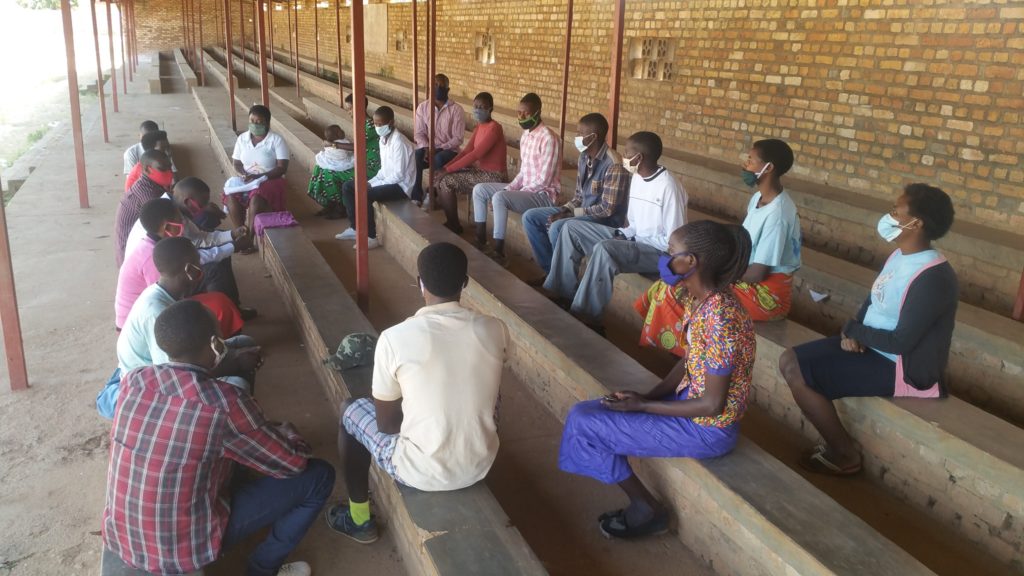Thankfully, most of us don’t know. However, many of us have woken from a nightmare at two in the morning and then tried to stay awake for a while, clearing our minds, rather than plunging back to sleep where the nightmare resumes. Yet, this doesn’t come close to capturing the awfulness of repeated flashbacks to a violent episode.
I’ve met people who relive a horrific incident several times a day. It is even worse if they live in the same place as the episode occurred because they are surrounded daily by sights and sounds that trigger the flashback. Someone in Africa may not have the freedom or resources to move away from the people and places reminding them of the past. In fact, we know many people in Rwanda who regularly encounter the individuals responsible for killing their families.
What Happens When The Past Returns?
A few months ago, in Kiziguro, Gatsibo district of Rwanda, a mass grave was uncovered. It had lain unnoticed since the 1994 genocide. Now, it is a memorial site, but the event has triggered a wave of flashbacks and nightmares among people who lost loved ones 27 years ago.
At Network for Africa, we have first-hand experience of the impact of dealing with this recent gruesome discovery. Our peer support counsellors are survivors, so they understand the psychological impact of finding a mass grave. After years of doubt, wondering where their loved one’s remains are, and perhaps nursing a slender hope that their parents or siblings might be alive somewhere, genocide survivors face fresh uncertainty, asking if their family members have finally been uncovered. Forensic identification takes a long time and is too expensive in many situations.
What Can Be Done?
Working with our local partner, SURF (the Survivors Fund), peer support counsellors are embedded in the community, offering help to the people who suspect their missing parents or siblings are in the burial pit. They are specially trained to teach people how to manage flashbacks, to make them less frequent. No one should pretend that post-traumatic stress can be cured but it is possible to acquire the skills to direct your thoughts to a safe and happy place when needed.

The results speak for themselves.
A snapshot of 50 of SURF’s peer support beneficiaries – in Kayonza, Gatsibo and Huye districts were surveyed on their overall mental health in February 2020, and again in November 2020 after a further 9 months of support.
The enduring nature of trauma, along with new triggers such as the Kiziguro grave discovery, means that the same number of people reported experiencing panic or terror in both surveys. However, SURF’s peer support counselling has reduced how regularly people experience such symptoms. Whereas 6 in 10 people said they were often enduring panic and terror at the start of 2020 (and 1 in 20 experiencing it most or all of the time), by the end of the year this was 1 in 10 (and none most of the time).
Flashbacks are often a sign of trauma, and this can be especially so during the genocide commemoration period. However, thanks to the support they’ve received, one third fewer people were getting flashbacks at the end of 2020 compared to the start of the year. Likewise, insomnia is a common trauma symptom; but following peer counselling support, the number who were suffering with insomnia had fallen by two thirds.
The numbers who feel unable to function like other people dropped from 64% to 36%, and only 4% feel their mental health stops them from working, compared with 88% before.
Thanks to the transformative effects of the peer support counselling, people feel much more hope for the future, and 98% now feel able to cope when things go wrong.
To support the work of Network for Africa, please go to: http://www.network4africa.org/donate
Thank you for your continuing help.